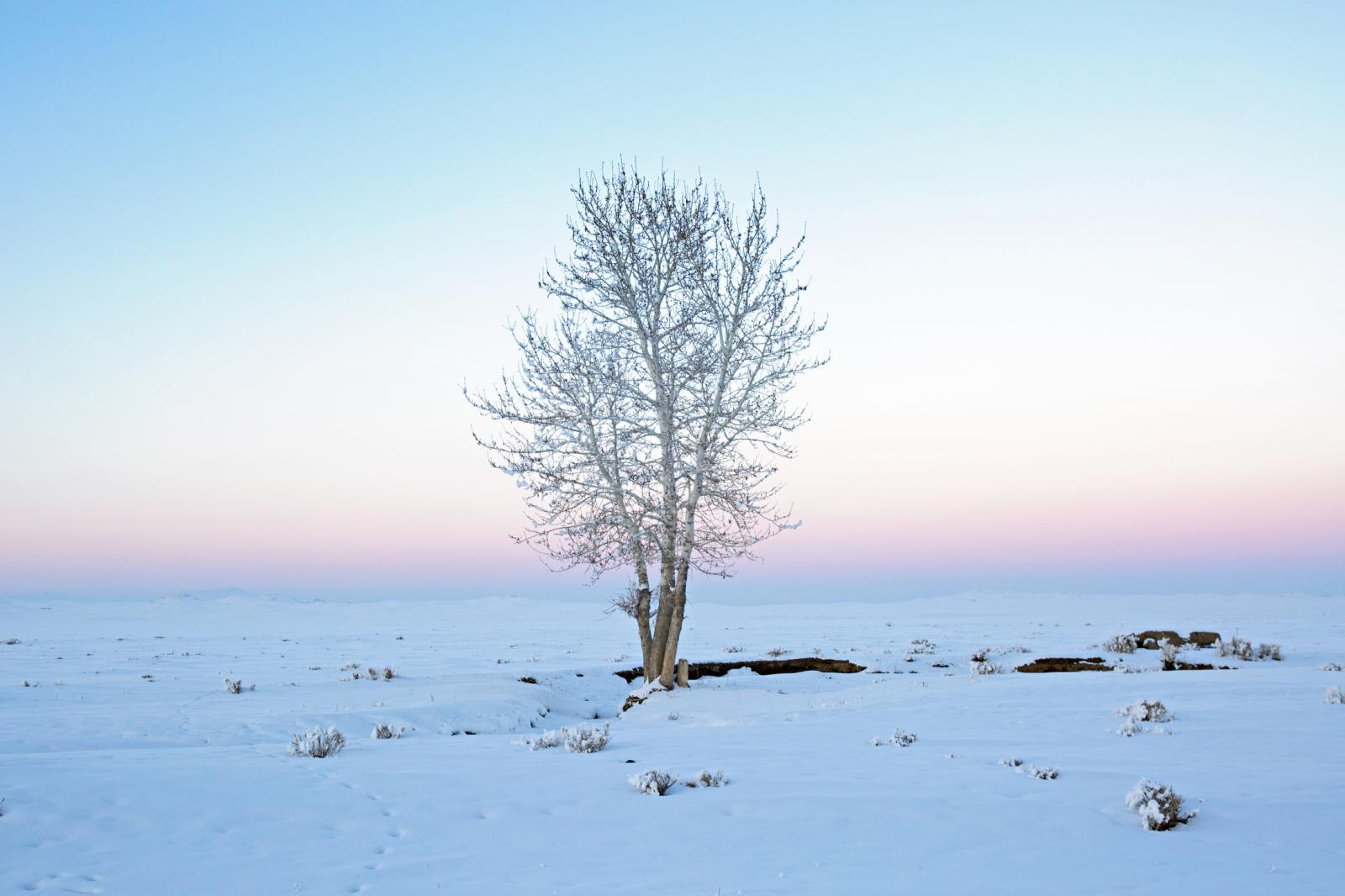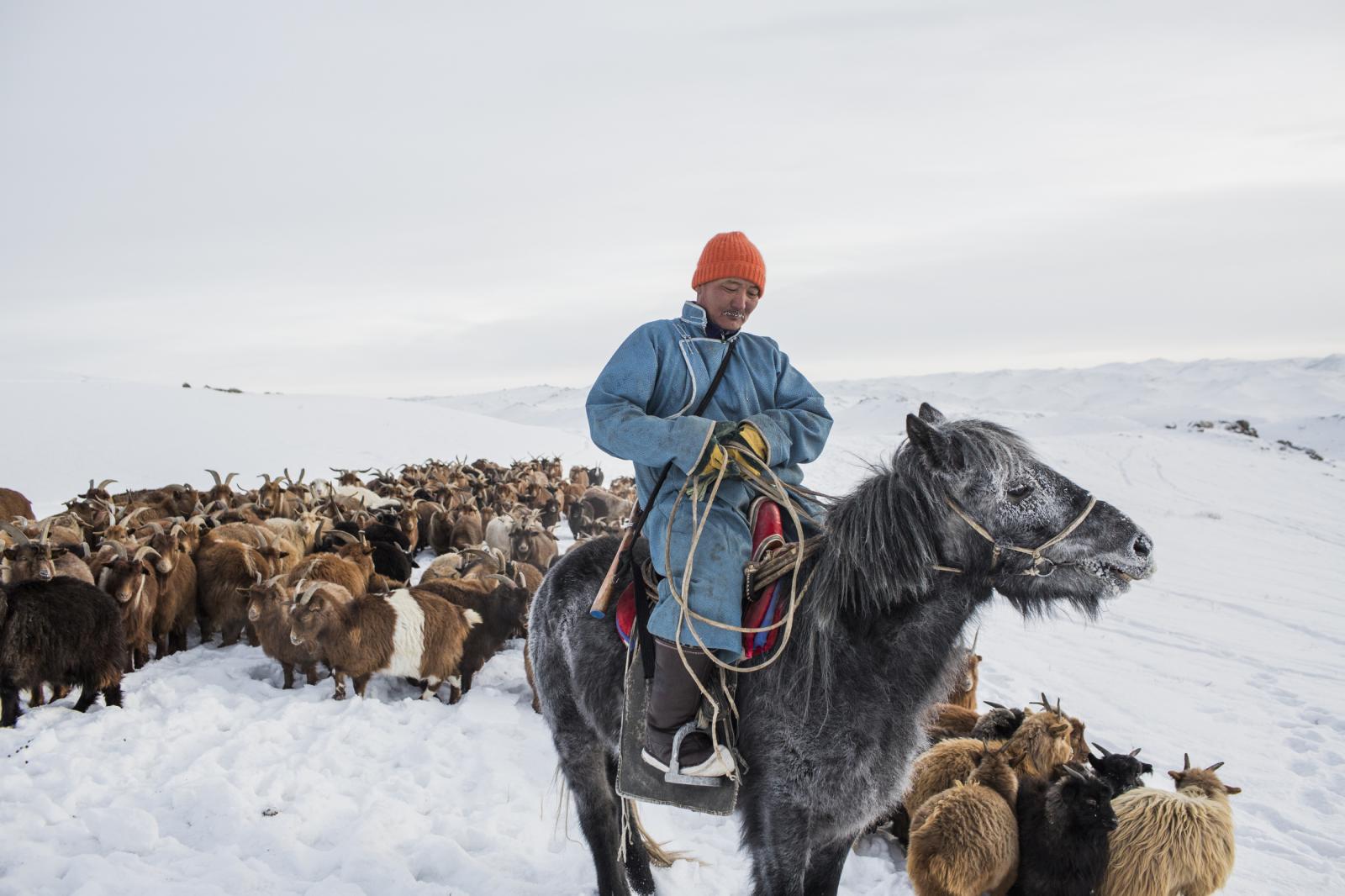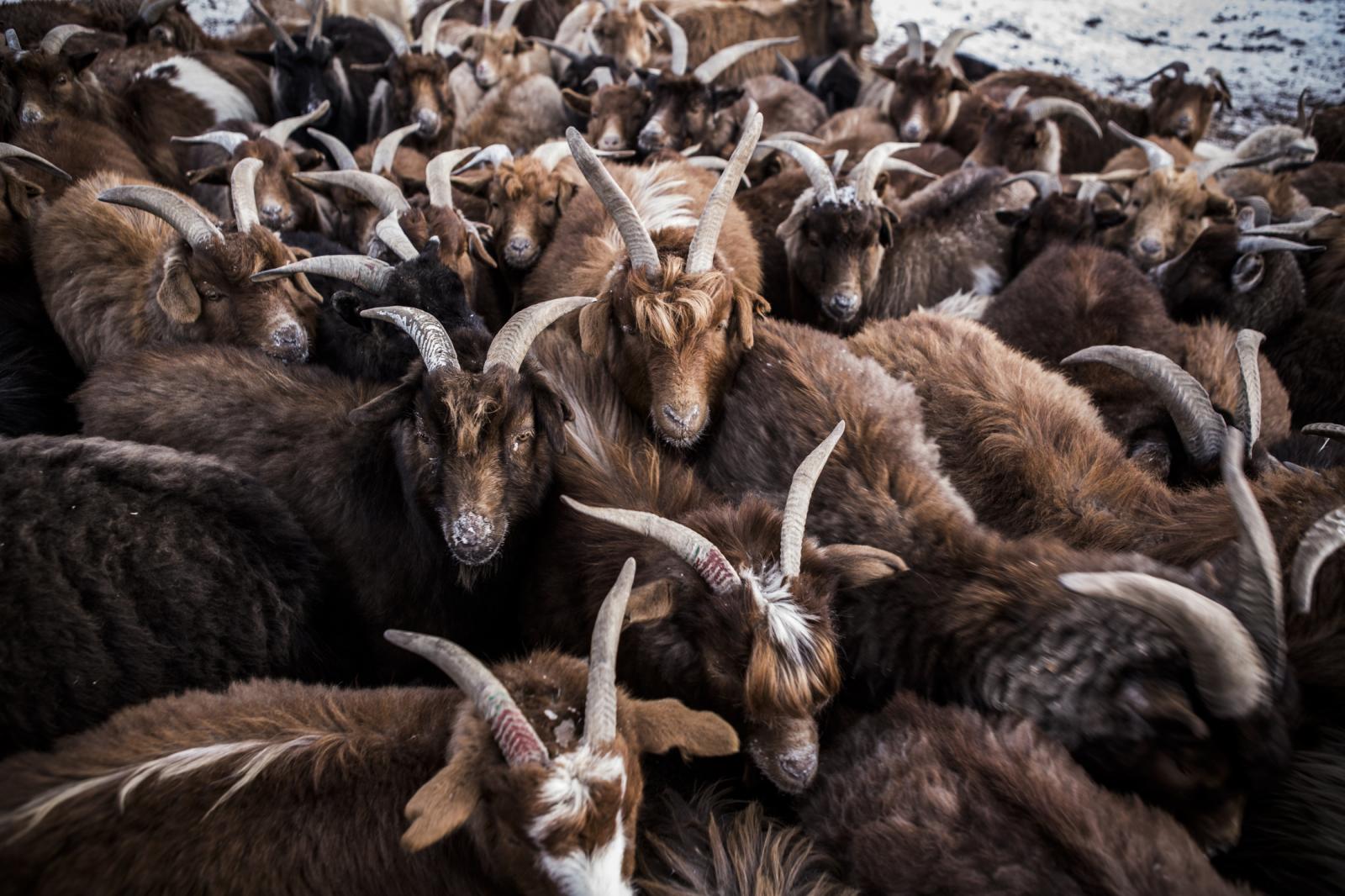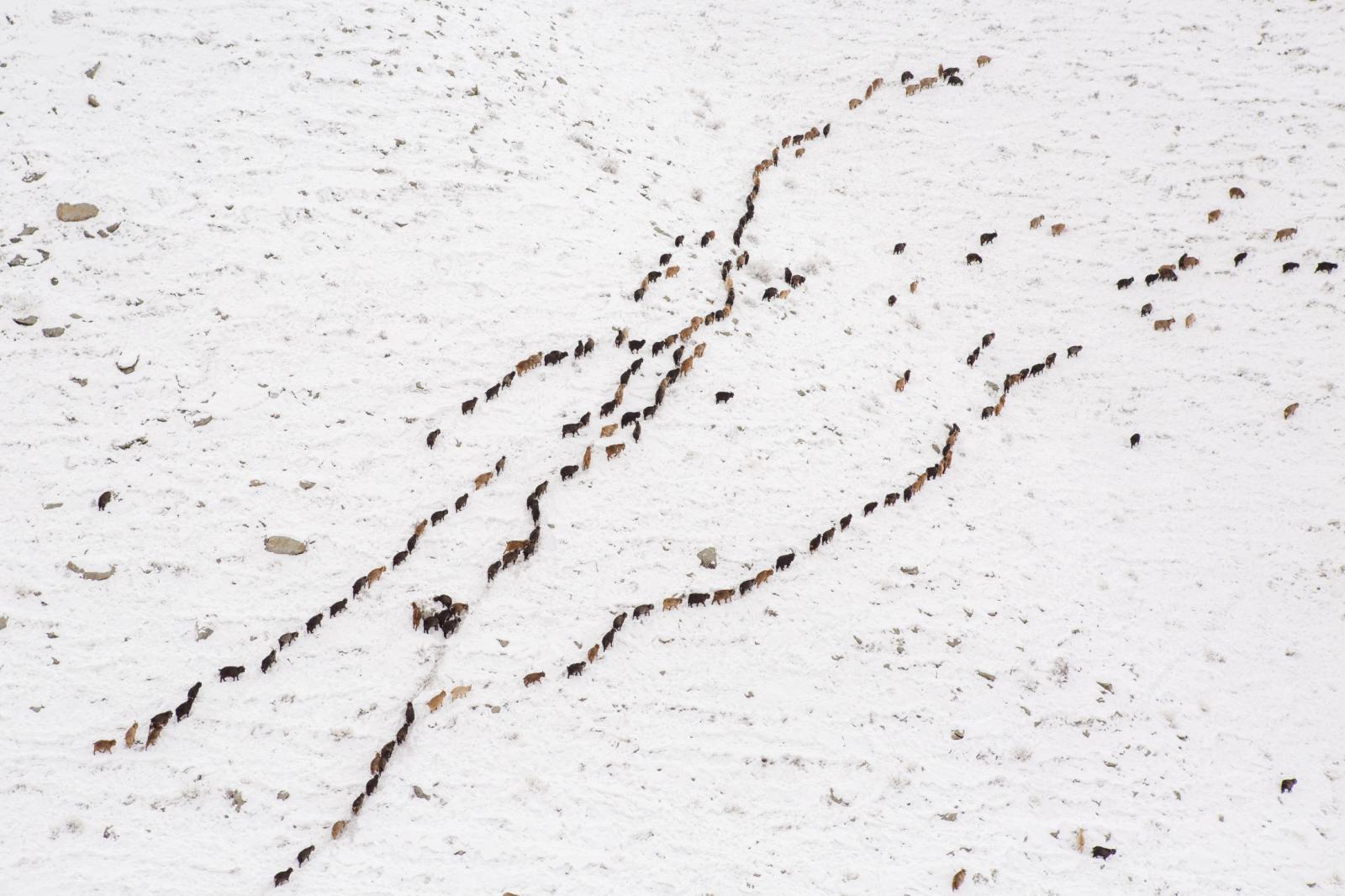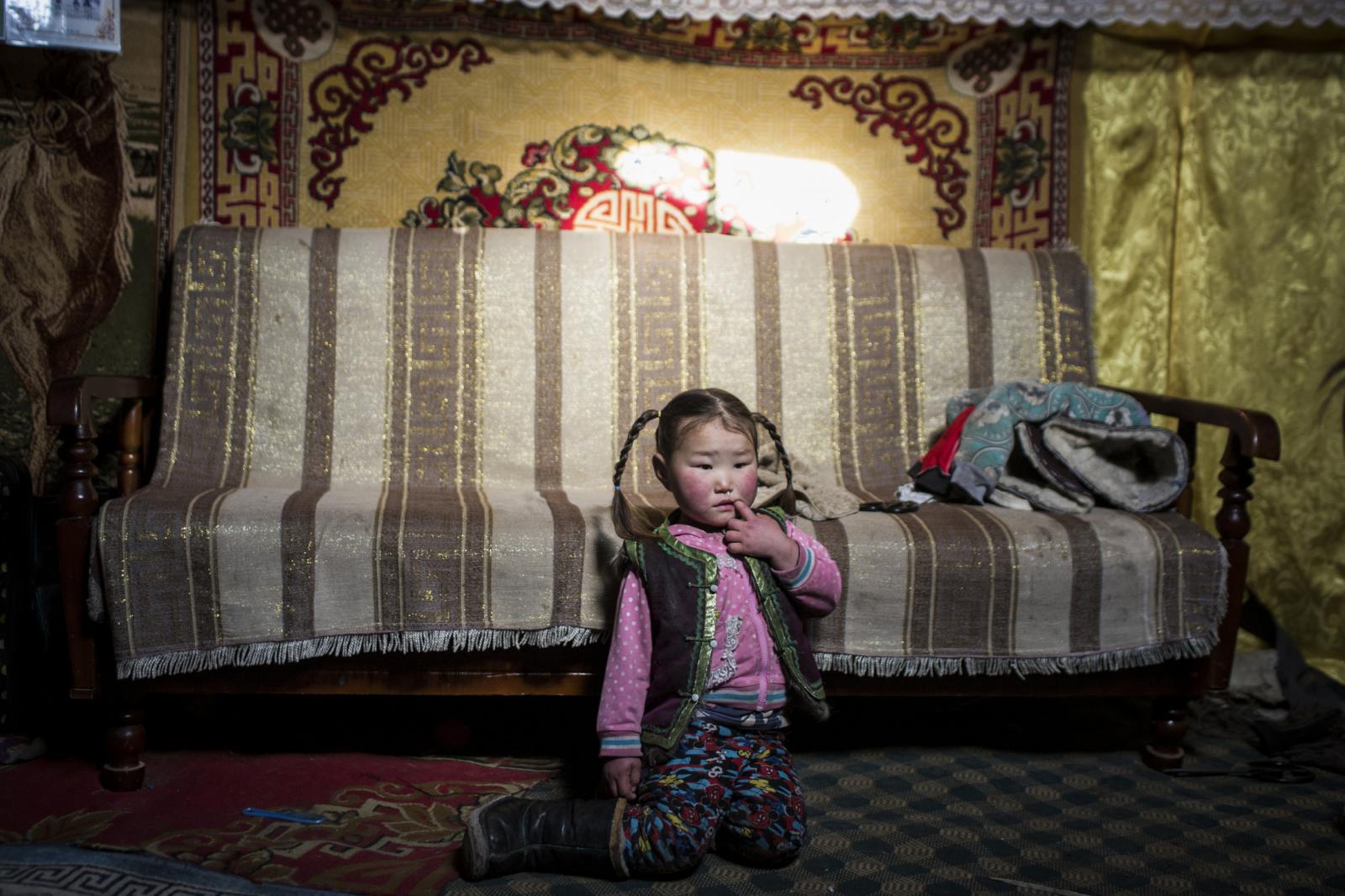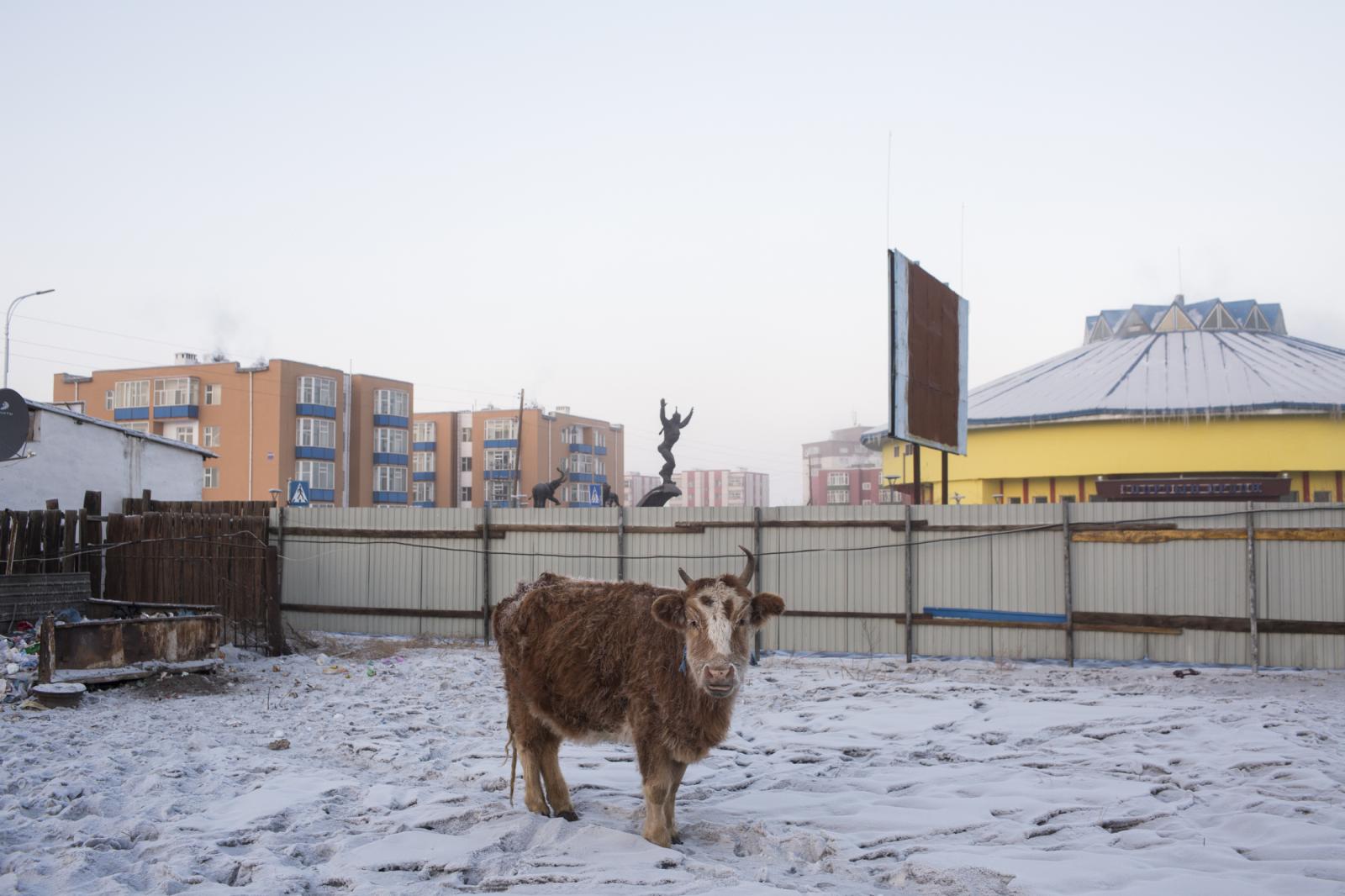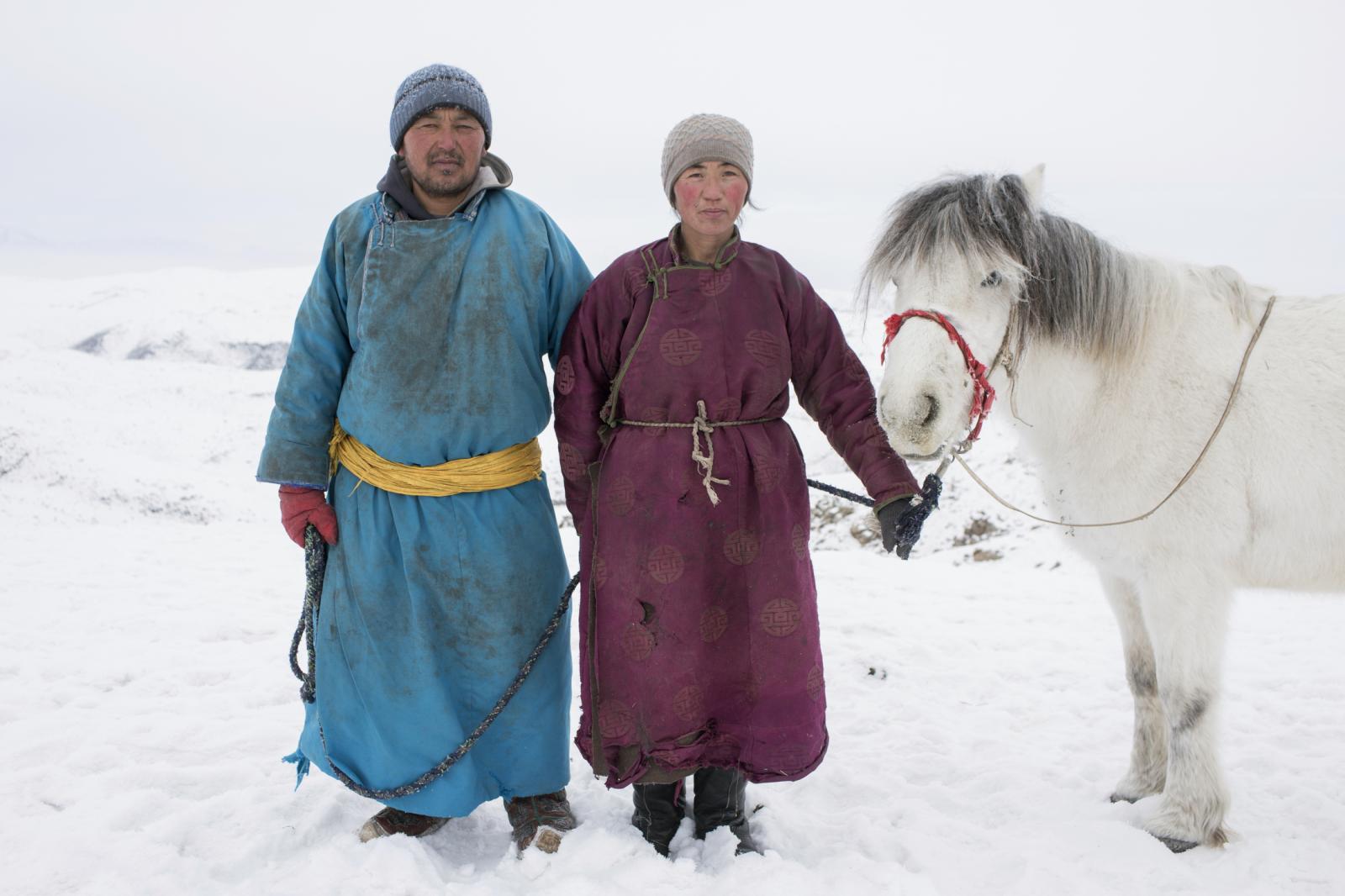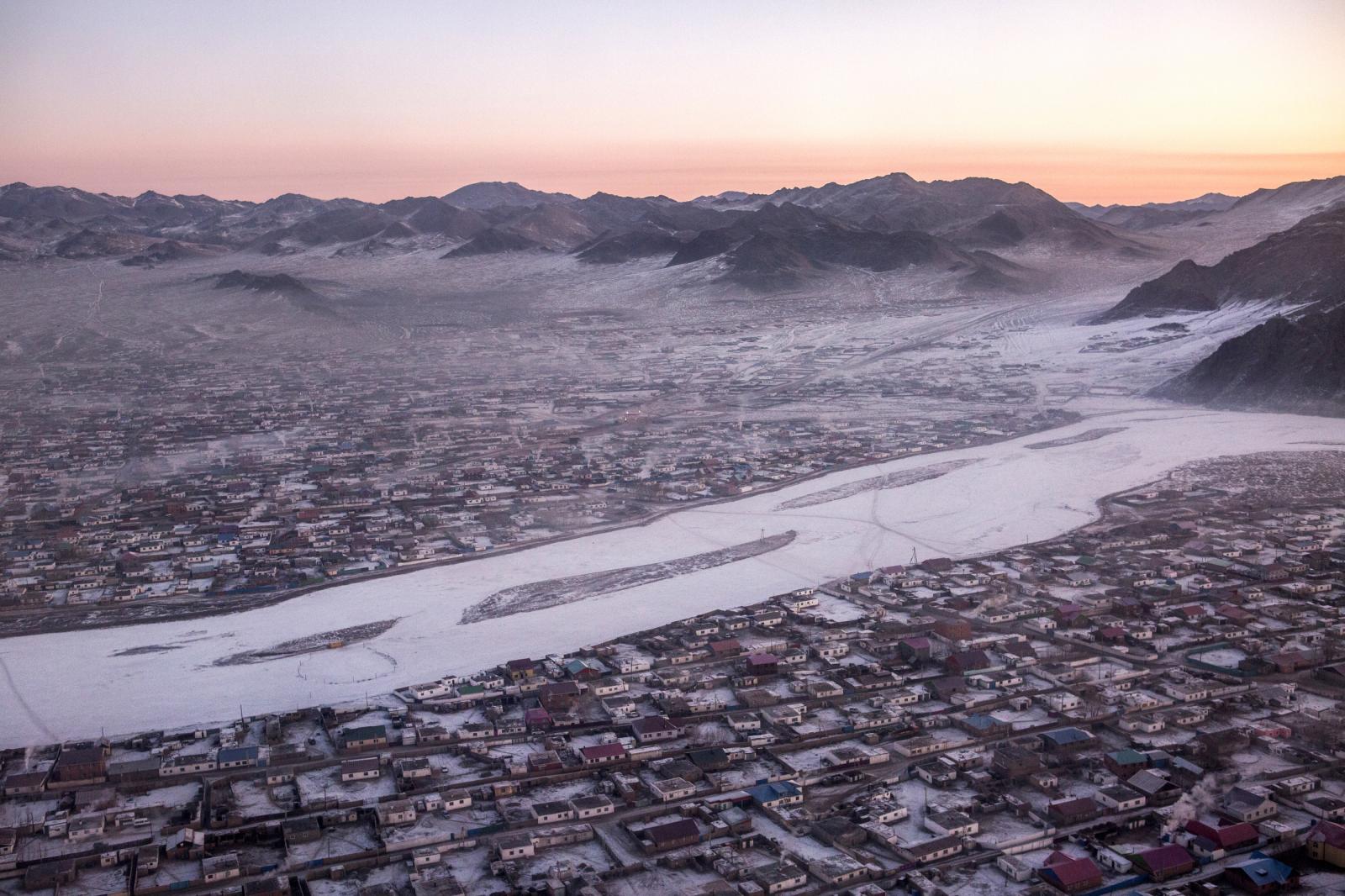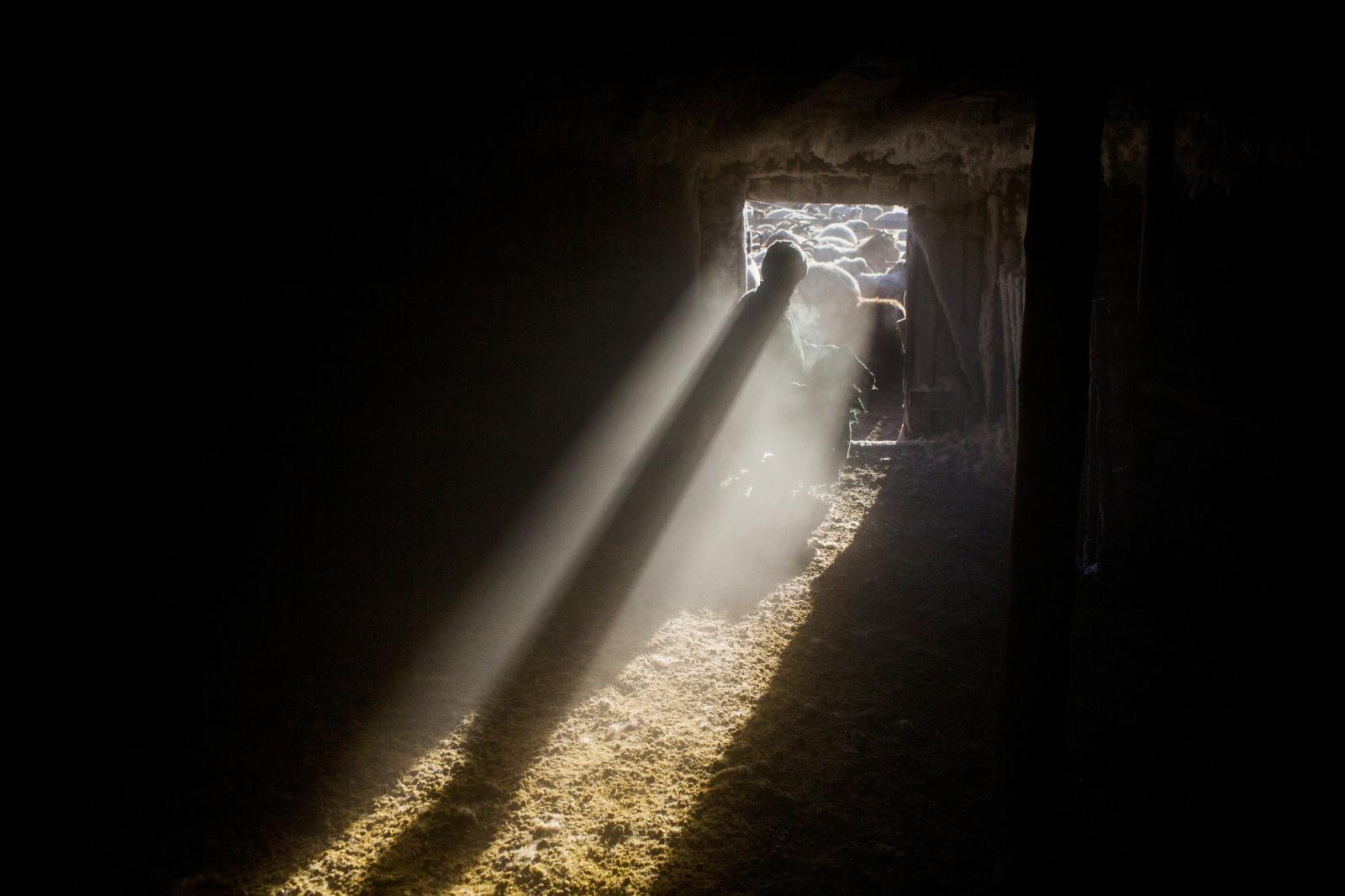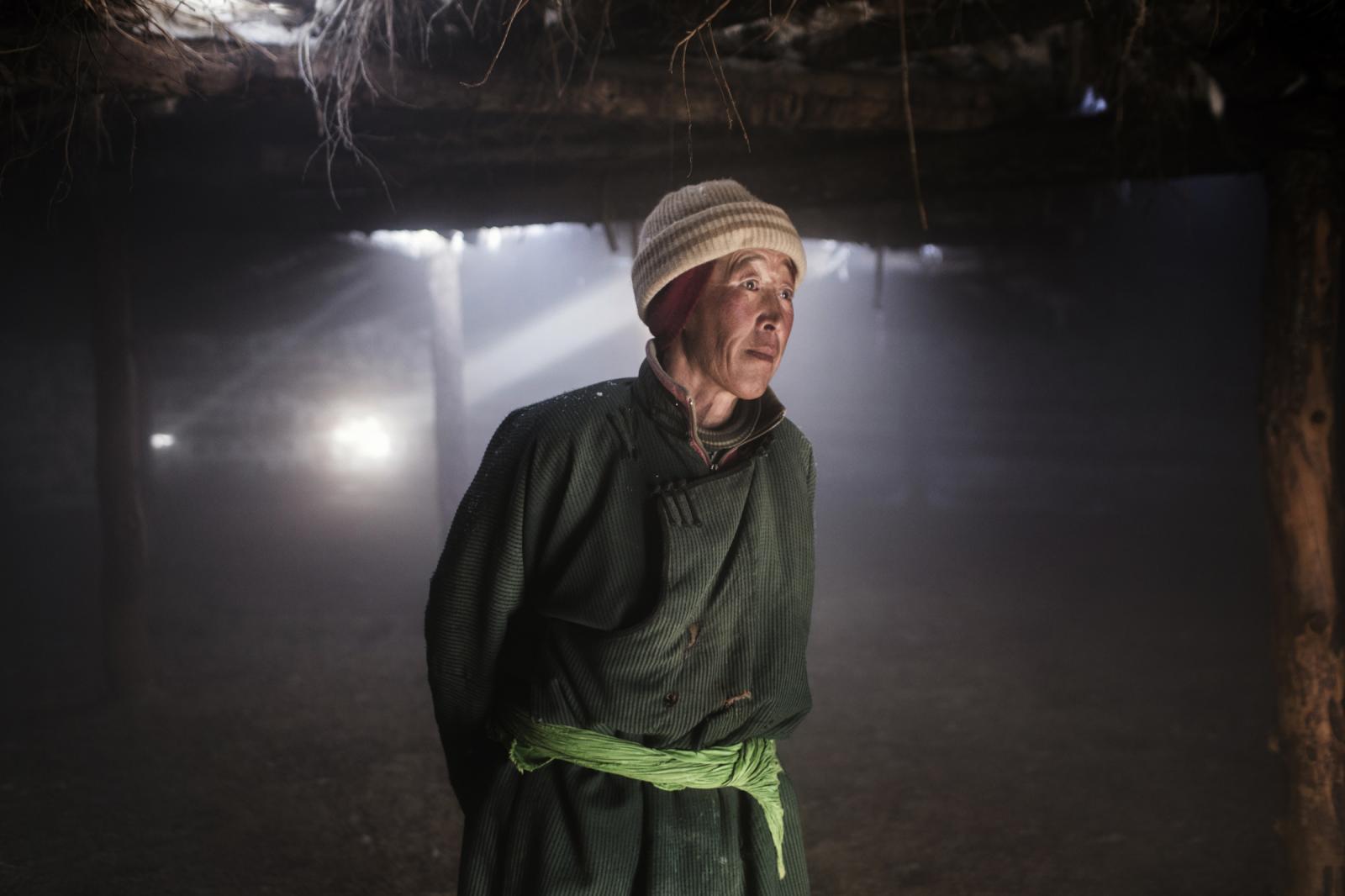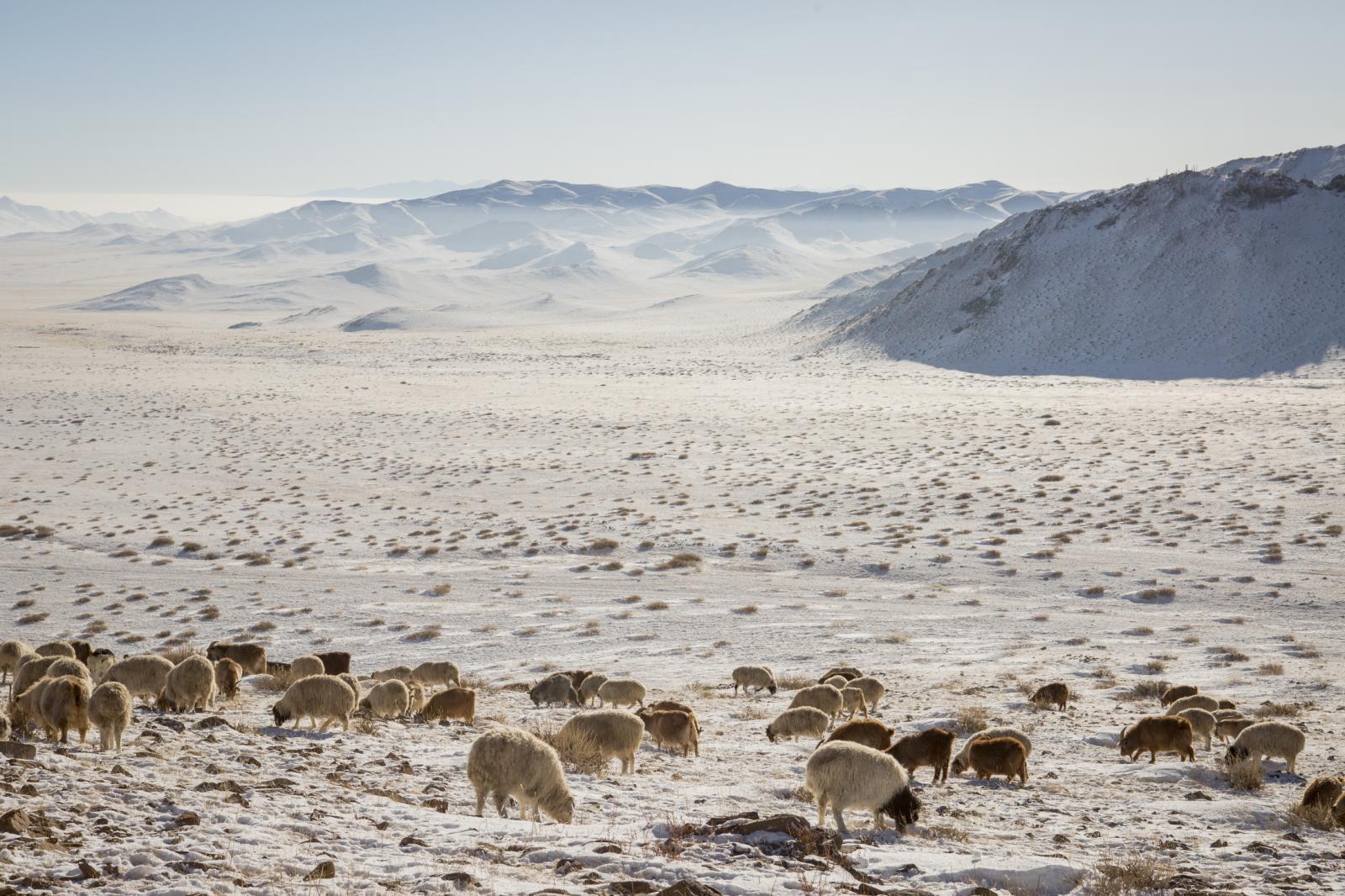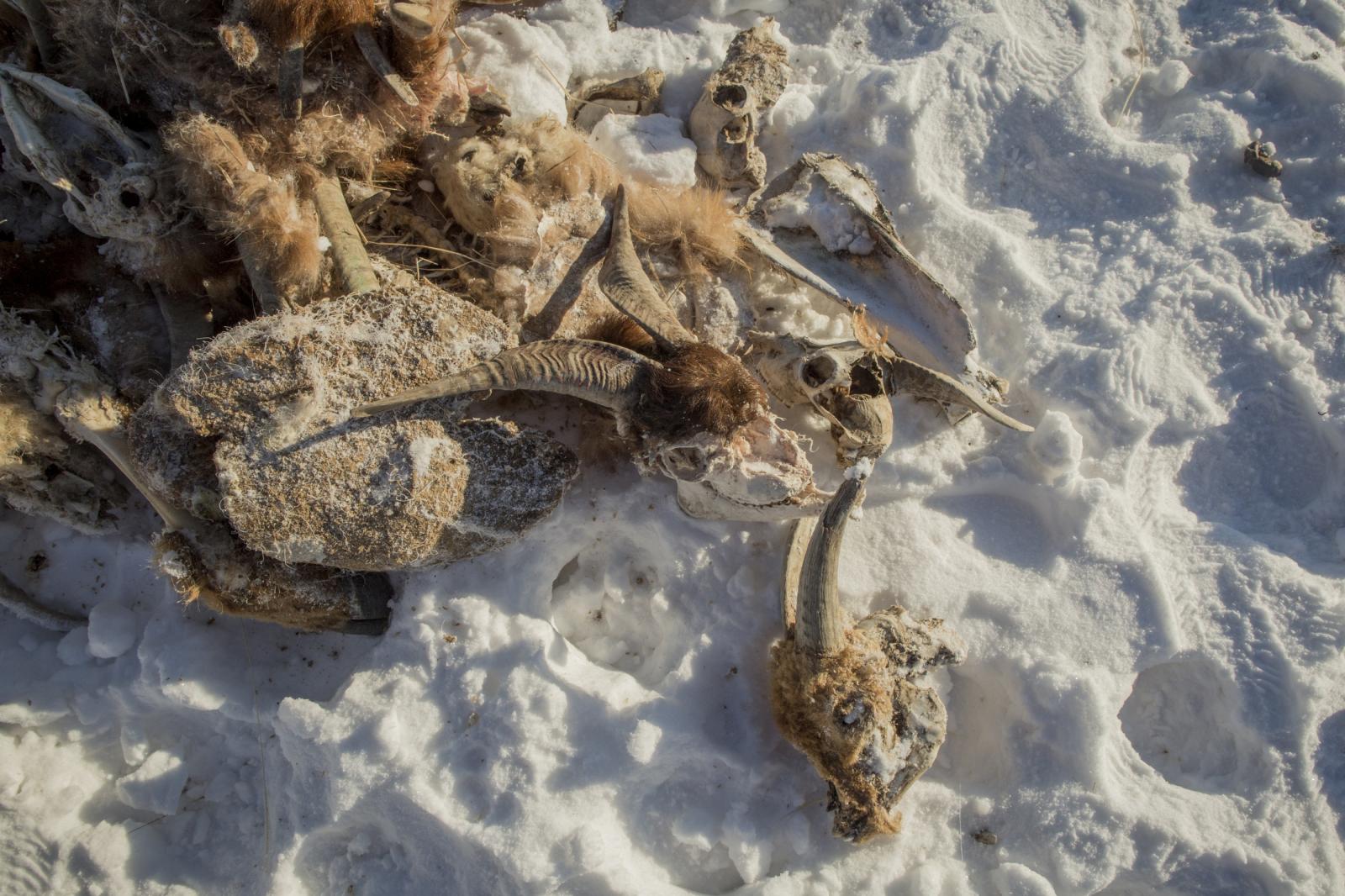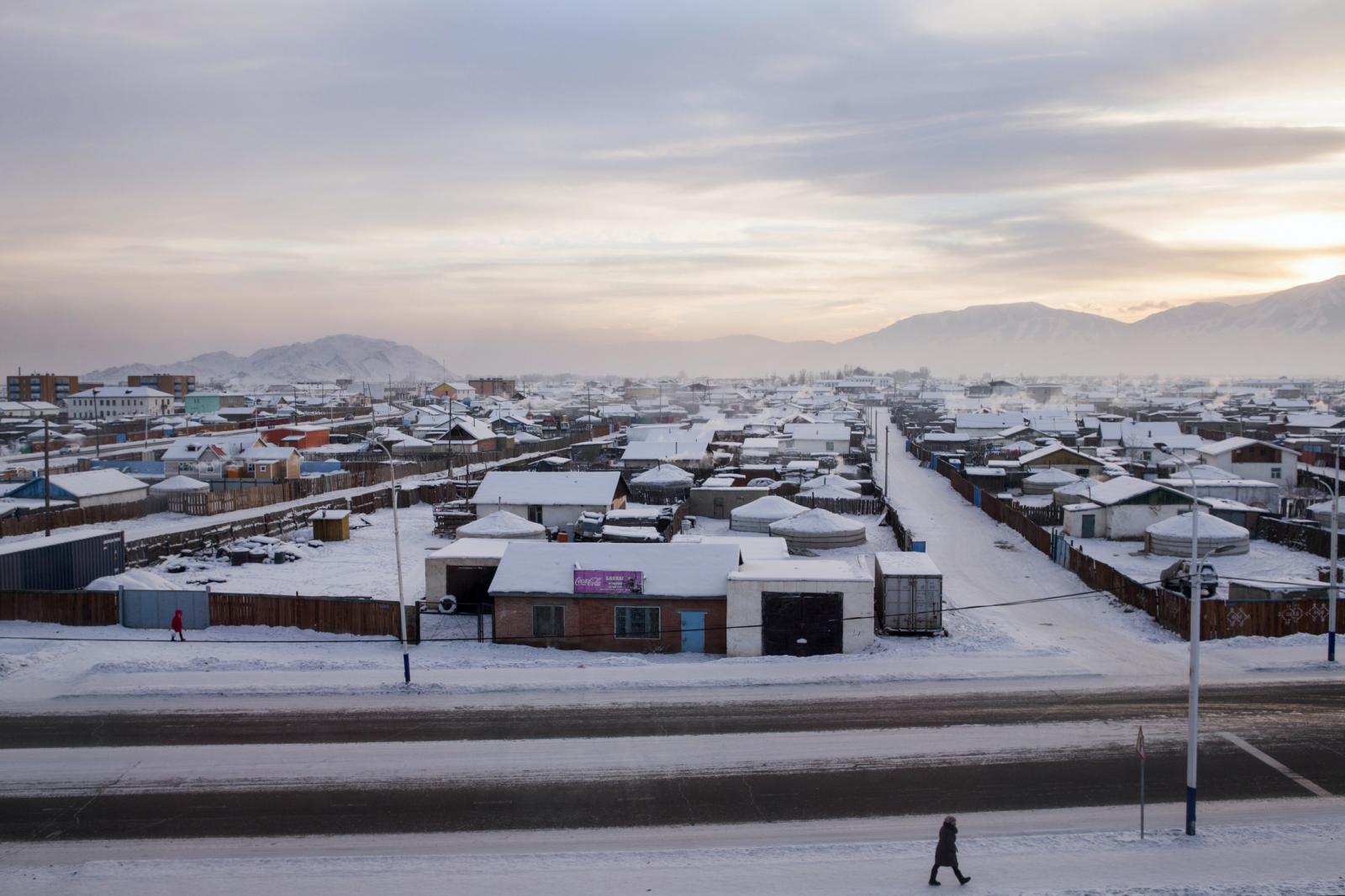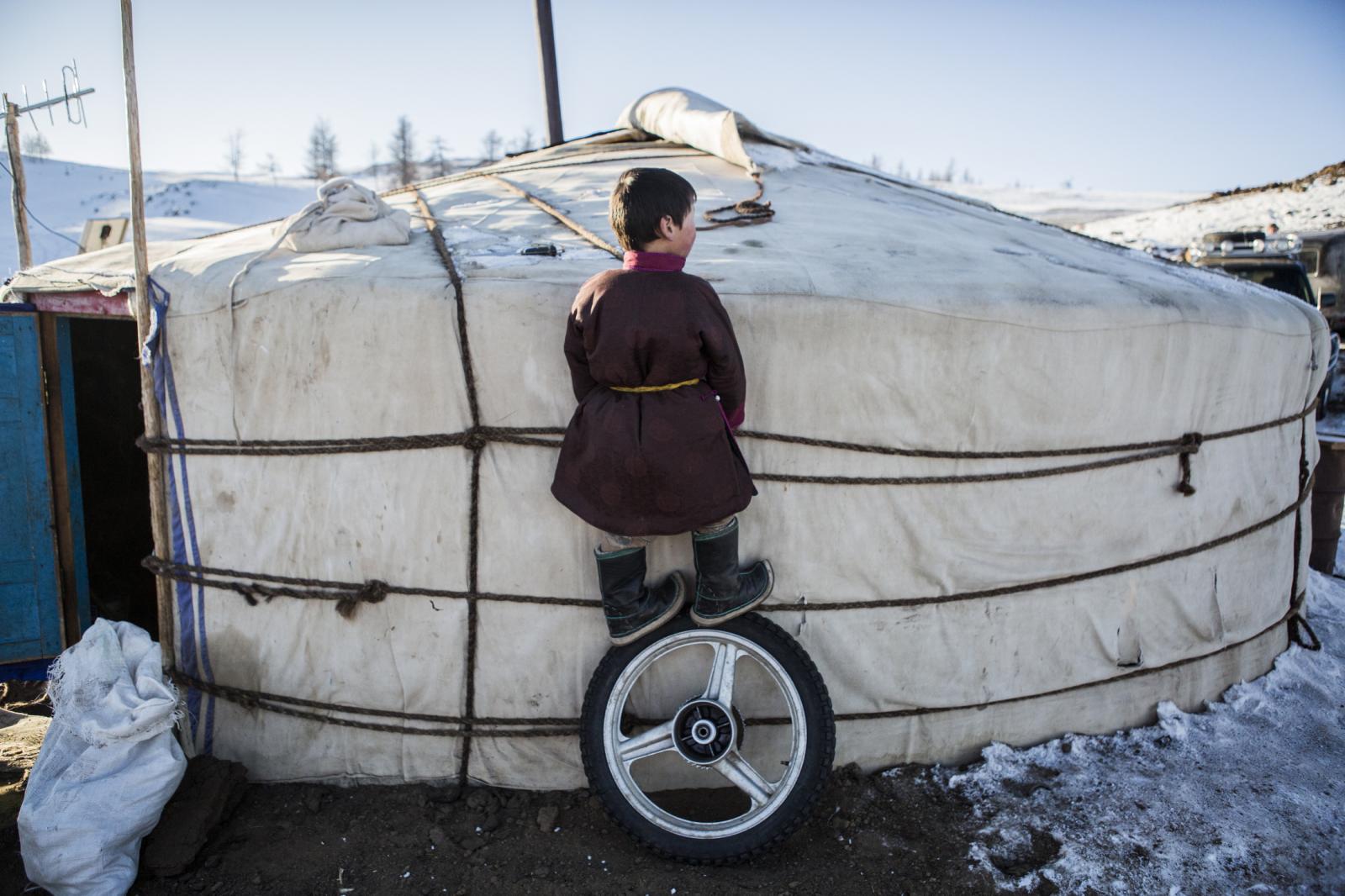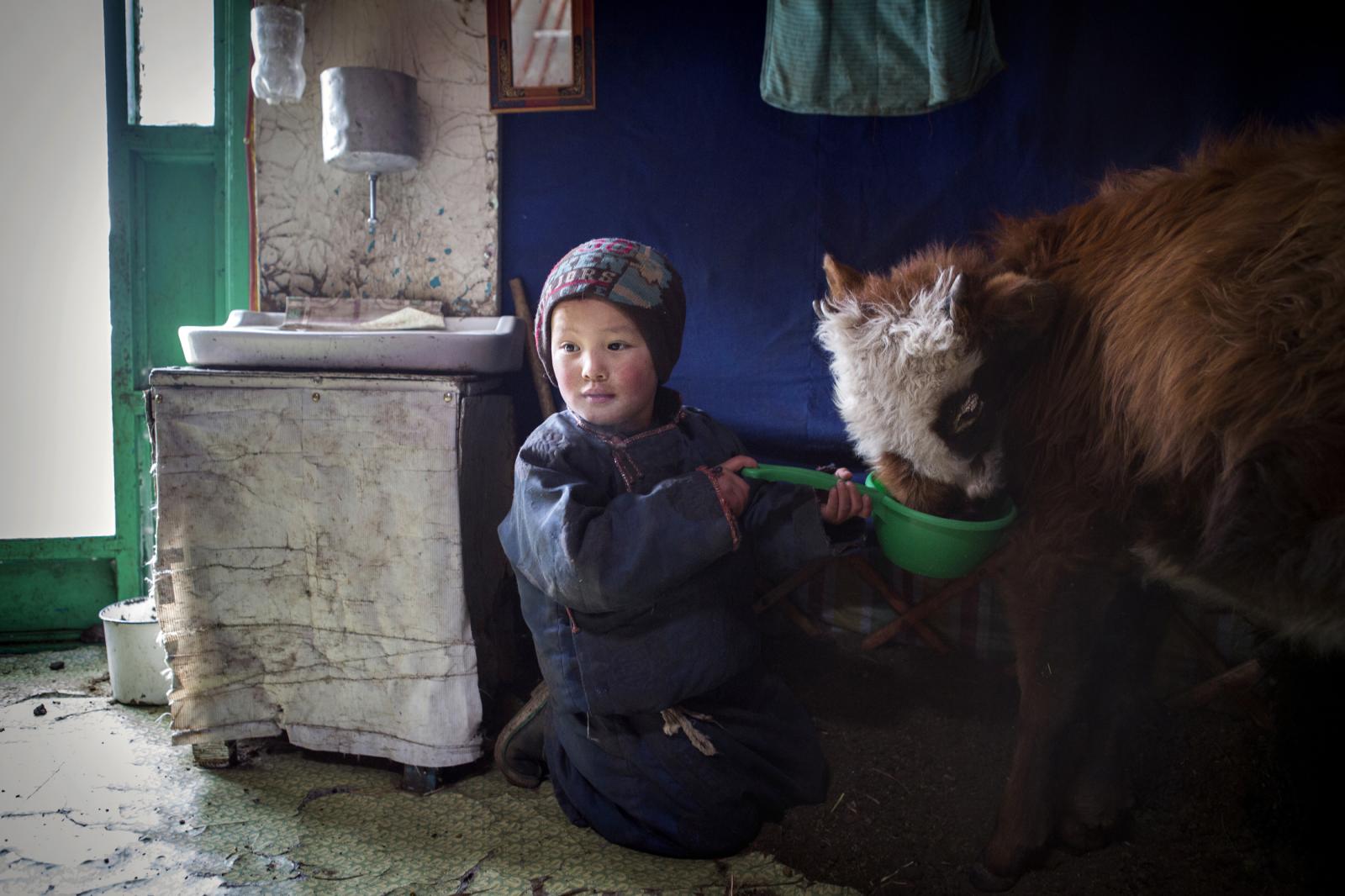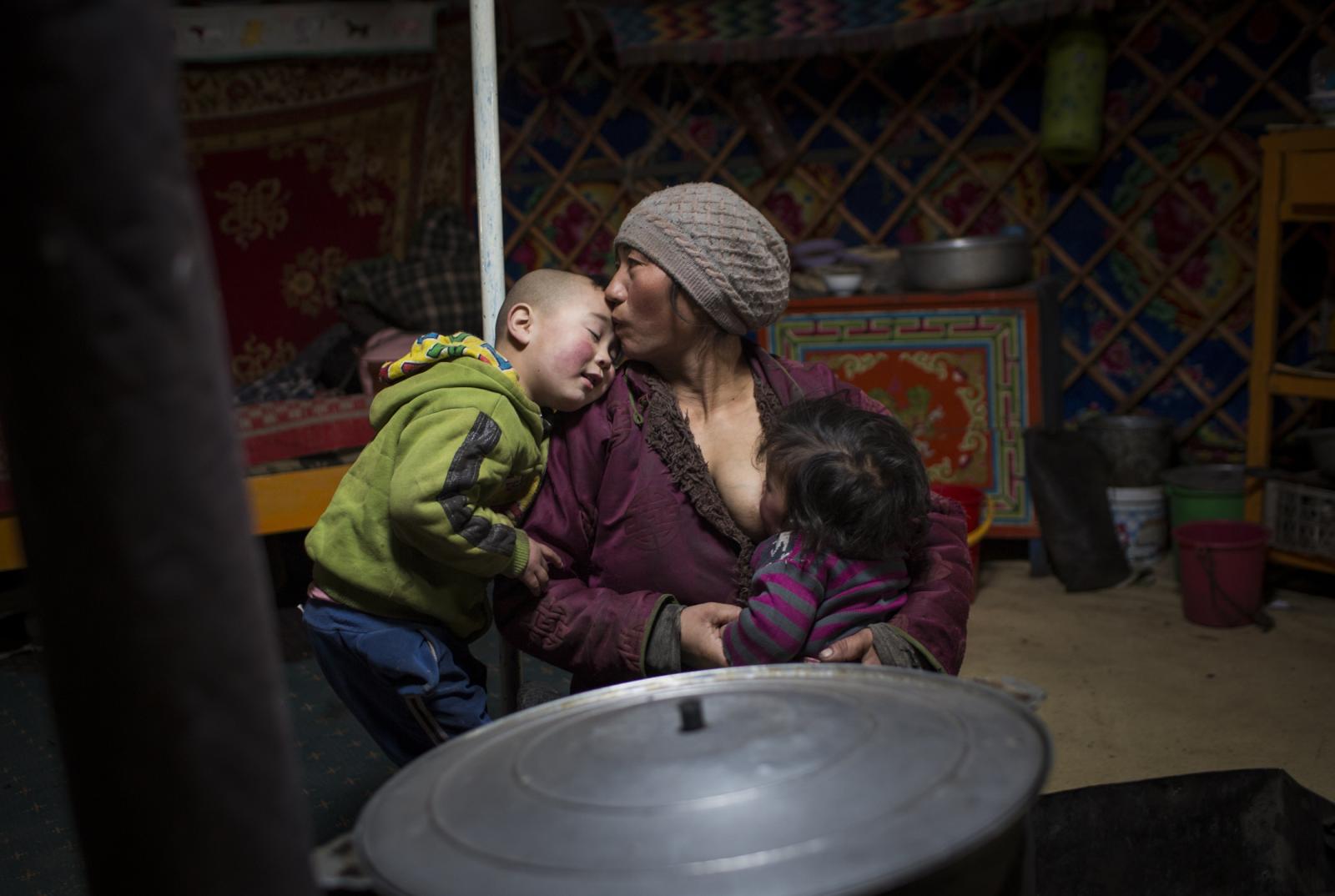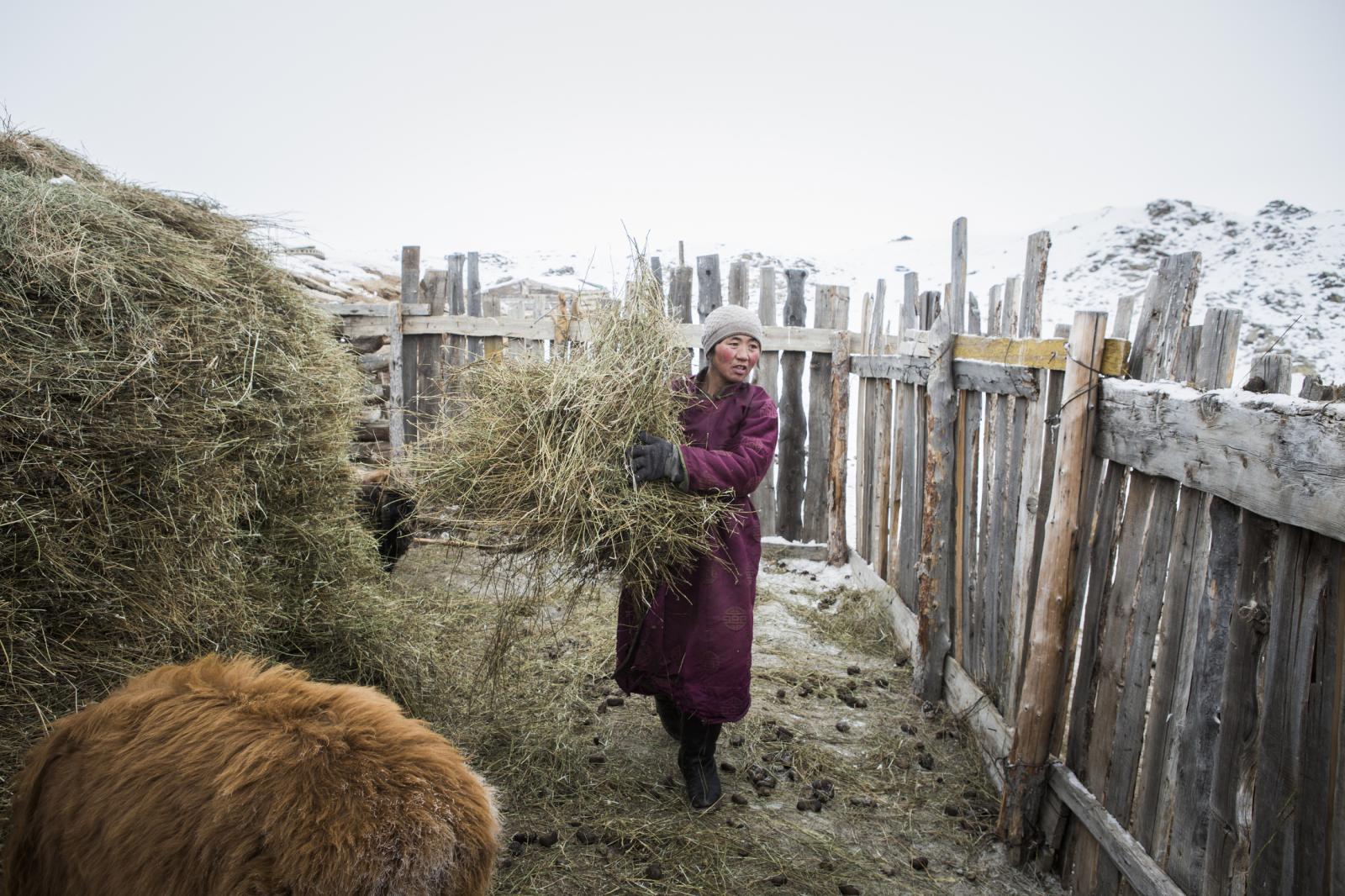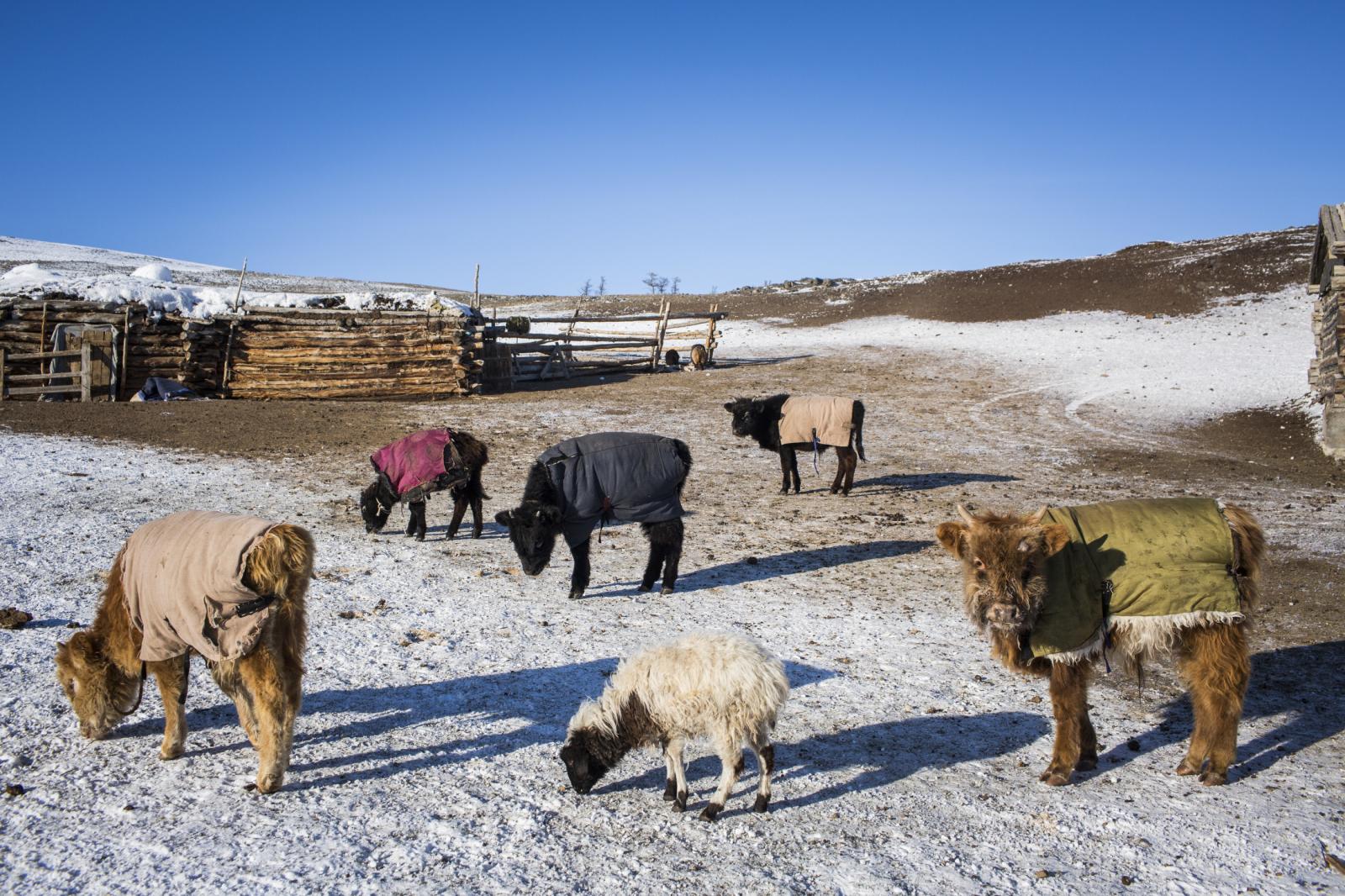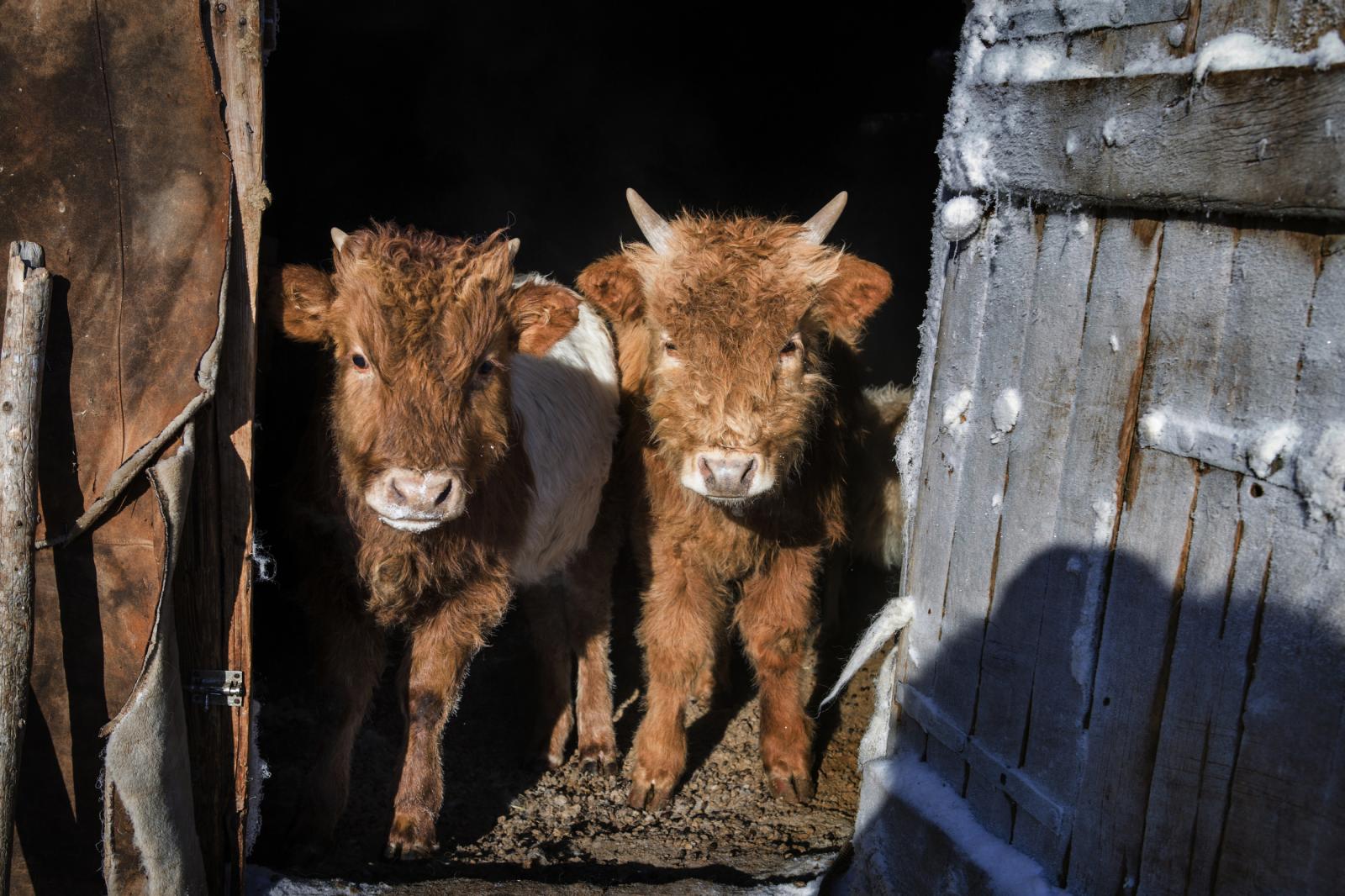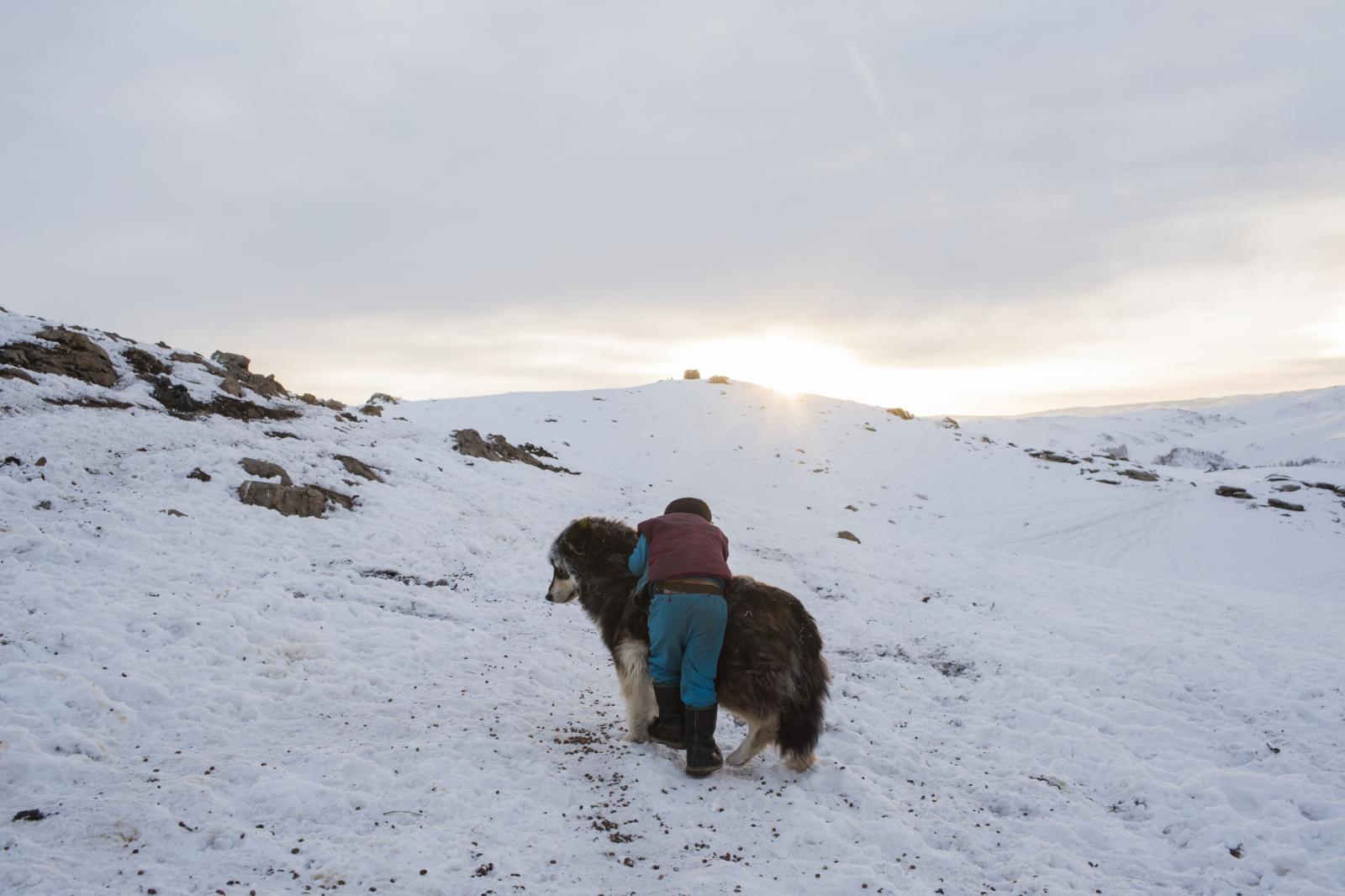"Dzud" is the Mongolian word for a winter famine. This crisis occurs when extremely cold winter weather leads to massive livestock die-offs that threaten the lives and livelihood of Mongolia’s large population of nomadic herders.
A Dzud is both a natural disaster and an example of climate change. Warming weather and lack of rain in the summer are increasing every year in Mongolia, and there is therefore less hay available for the animals to gain the weight they need to endure the brutal winter. With cold winds coming from Siberia, temperatures drop to below -50 C. Animals can't graze and freeze or starve to death.
Once nomadic herders lose their animals, they have no income, can’t repay their bank loans and many go bankrupt. As a result the nomadic way of life is vanishing in Mongolia as more and more families leave the countryside for the capital city Ulaanbaatar plagued by pollution and unemployment.

